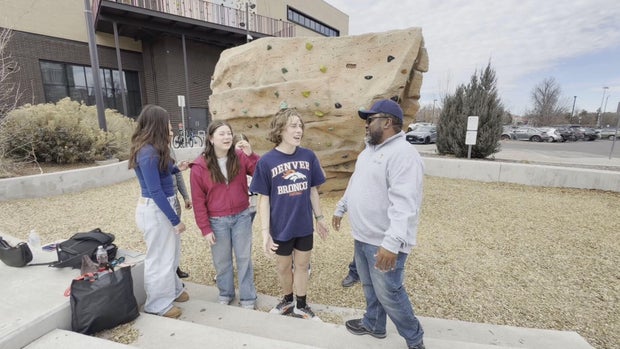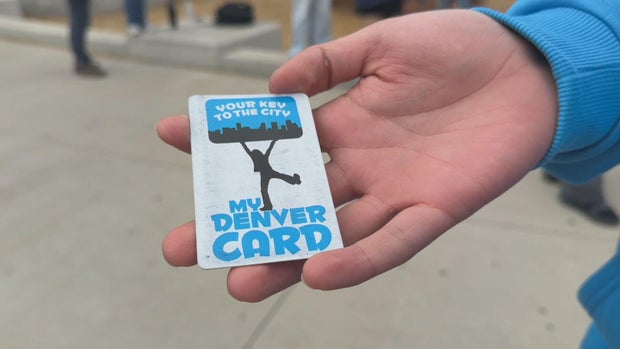Denver, CO
Scotto: Brooklyn Nets add Denver Nuggets director of scouting to staff

The Brooklyn Nets have never needed a scouting staff like they do this year. As every Nets fan knows, following their two trades with the Knicks and Rockets on June 25, they’ll have four first rounders and likely two seconds in 2025. Moreover, with a rebuild/tank underway, the Nets could wind up with the overall No. 1. So the stakes are high.
On Wednesday, Mike Scotto noted again that the staff is in flux. He tweeted that Drew Nicholas, who’s been the director of scouting for the Denver Nuggets the past two seasons, will be joining the Nets staff…
The Brooklyn Nets have added Drew Nicholas to their scouting department, league sources told @hoopshype. Nicholas spent the past two years as Director of Scouting for the Denver Nuggets. Nicholas helped Maryland win the NCAA championship in 2002 and is a Long Island native. pic.twitter.com/Jid1QdPc5x
— Michael Scotto (@MikeAScotto) August 21, 2024
No details on what Nicholas role will be in Brooklyn. His Twitter account lists him simply as a “scout” for the Nets.
It was the third time that Scotto has reported on staff changes. Last month, he noted that Andre Barrett, the former Seton Hall great, has also been added…
The Brooklyn Nets have hired Andre Barrett as a scout, league sources told @hoopshype. Barrett was a local star at Rice High School and Seton Hall University before playing four NBA seasons. He worked for the NBA for four years and was Director of Scouting for the G League Ignite pic.twitter.com/Y99RZRTx55
— Michael Scotto (@MikeAScotto) July 23, 2024
Earlier, Scotto reported that Oronde Taliaferro, who’s been a scout for Brooklyn, is joining the Phoenix Suns as the director of scouting…
The Phoenix Suns are hiring Oronde Taliaferro as their Director of Scouting, league sources told @hoopshype. He’s expected to focus on college scouting. Taliaferro was previously a scout for the Brooklyn Nets. pic.twitter.com/jVwgLE8RB2
— Michael Scotto (@MikeAScotto) August 12, 2024
The scouting changes are the latest personnel moves reported — but not yet made official — in Brooklyn’s front office.
Jim McDonnell, who has been an assistant video coordinator for the Nets the past two years, has moved into the head spot. Travis Bader who had been the head video coordinator is now an assistant coach with the Nets.
Makar Gevorkian who replaced long-time Nets staffer Matt Tellem as capologist after Tellem left for the Suns, has also inherited Tellem’s title, vice president of basketball operations for alignment and strategic planning.
Big jobs still be announced include assistant GM and co-head of the performance team, left open by the departures of Jeff Peterson and Les Gelis.

Denver, CO
Richard Jackson Obituary | The Denver Post

Richard Jackson
OBITUARY
Richard E. Jackson, affectionately called “Jackson”, was beloved by his family, friends and colleagues. He passed peacefully surrounded by his wife and children. He was receiving exceptional medical care at City Park Healthcare and Rehabilitation Center at the time of his death. A devout Catholic, he received his Last Rights from Fr. John Ludanha of Blessed Sacrament Church and School.
He earned a Bachelor’s degree in Economics from Gannon University and a Master’s degree in Education from the George Washington University. For over 30 years, he was employed by the federal government, mostly as an analyst for the Social Security Administration (SSA). Other positions he held were: Beneficiary Services Specialist, Division of Medicare, Health Care Financing Administration; Public Affairs Specialist for SSA; and Management Analyst SSA Office of Management and Budget. After he retired, he was a consultant to the State of Colorado Center for Medicare and Medicaid Services.
Jackson was a devoted father, step-father and foster father. He would take over the kitchen and cook spaghetti and meatballs, a family favorite, and then transport children to gymnastics practice and friends’ houses. He had a remarkable sense of humor, bringing joy and laughter to his home. He adored his wife and would leave her weekly love notes in drawers around the house. Exercising at the Denver Athletic Club, taking walks with his wife, and reading the New York Times were three of his favorite activities. He was born in Westfield, New York. His parents were Canadian immigrants. He was the youngest of eight children.
He is survived by his wife, Joycee Kennedy; his children – Kimberly Jackson (Mike Estes), Dawn Jennings (Ed Jennings) and Kevin Jackson; his stepchildren – Cary Kennedy (Saurabh Mangalik) and Jody Kennedy (Christopher Thompson); his grandchildren – Elizabeth, Chase and Drew; his step grandchildren – Kadin, Kyra, Bryce and Sena; and his first wife Madonna Smyth.
Services will be held at Blessed Sacrament Church – the time and day to be announced.
Denver, CO
Students push for statewide

Students from across the Denver metro are heading to the state Capitol to push for free after-school opportunities statewide.
The proposal would create a “My Colorado Card” program, giving students in sixth through 12th grades access to cultural, arts, recreational and extracurricular activities throughout the state.
For students like Itzael Garcia, Denver’s existing “My Denver Card” made a life-changing difference. He said having access to his local recreation center helped keep him safe.
“We had a couple stray bullets go through our living room window, we had people get shot in front of our house, different things like that,” Garcia said. “Over the summer, being able to go to the public pool, it provided a space for us to all come together. In a way, it acted as a protective factor.”
The My Denver Card provides youth ages 5 to 18 with free access to the zoo, museums and recreation centers. For some, like Garcia, it has served as a safe haven.
That impact is why students involved with the nonprofit FaithBridge helped craft legislation to expand a similar pilot program to communities outside Denver.
“We really just thought that inequity and really distinct opportunity deserts for students was really important for us to correct,” said Mai Travi a junior at Thomas Jefferson High School. Another student echoed that sentiment.
“We have a lot of students in the program that come from Aurora Public Schools, and they don’t have access to the same cultural facilities that we have living here; opportunities that really define our childhood experiences,” said Jack Baker, also a junior at Thomas Jefferson High School.
Vernon Jones, director of the nonprofit FaithBridge, said organizers are still working out logistics but hope to partner with counties across Colorado.
“This is a strategy to work for all of Colorado,” he said.
Denver school board member Marlene De La Rosa said the My Denver Card program has been impactful since its launch in 2013.
“For students that are on free and reduced lunch, the ‘My Denver Card’ can help scholarship some of their fees to participate in the youth sports at the recreation centers,” De La Rosa said.
Last year, 45,000 Denver youth had a card, accounting for 450,000 visits to recreation centers, outdoor pools and cultural facilities, she said.
“I think it is very beneficial,” De La Rosa said.
The Denver program is funded by city tax dollars approved by voters in 2012. The proposed statewide pilot would instead rely on donations and grants.
The bill has cleared its first committee but still needs approval from the full House and Senate.
Denver, CO
Tempers flare during another tightly contested matchup between Denver Nuggets, Oklahoma City Thunder

-

 World4 days ago
World4 days agoExclusive: DeepSeek withholds latest AI model from US chipmakers including Nvidia, sources say
-

 Massachusetts4 days ago
Massachusetts4 days agoMother and daughter injured in Taunton house explosion
-

 Montana1 week ago
Montana1 week ago2026 MHSA Montana Wrestling State Championship Brackets And Results – FloWrestling
-

 Denver, CO4 days ago
Denver, CO4 days ago10 acres charred, 5 injured in Thornton grass fire, evacuation orders lifted
-

 Louisiana7 days ago
Louisiana7 days agoWildfire near Gum Swamp Road in Livingston Parish now under control; more than 200 acres burned
-

 Technology1 week ago
Technology1 week agoYouTube TV billing scam emails are hitting inboxes
-

 Technology1 week ago
Technology1 week agoStellantis is in a crisis of its own making
-

 Politics1 week ago
Politics1 week agoOpenAI didn’t contact police despite employees flagging mass shooter’s concerning chatbot interactions: REPORT





















